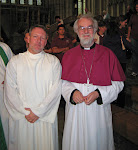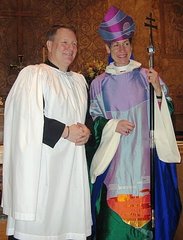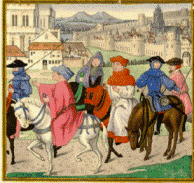 I no longer apologize for reading mysteries when given the chance. Not since I discovered some years ago that most of my Literature professors set aside Austen, Dickens and Shakespeare at term's end and spent their summers engrossed in some of the better written, literary crime fiction out there. Here are some recent mysteries well-worth a place in your beach bag:
I no longer apologize for reading mysteries when given the chance. Not since I discovered some years ago that most of my Literature professors set aside Austen, Dickens and Shakespeare at term's end and spent their summers engrossed in some of the better written, literary crime fiction out there. Here are some recent mysteries well-worth a place in your beach bag: In The Woods by Tana French
In The Woods by Tana French
This one is a winner all around. French is a first time novelist and she deliveries a intriguing, interesting plot and characters in this first outing. The characters are so well drawn and believable. The male protagonist is one of the best written by a woman since Pat Barker's Regeneration trilogy. He must investigate a murder that is strikingly similar to a crime he survived when just a child. A crime the details of which he has suppressed. French handles this coincidental plot device deftly, and you never feel 'set -up' or that the plot is a bit too neat or cute. The psychological insight into the crime and those affected by it is spot on, without seeming preachy or Oprah-esque.
The relationship that develops between the two detectives, Ryan and Maddox, is enveloping. The novel is as much about that relationship as it is about a crime. And you find yourself as interested in their interplay as in solving the crime. Even the auxiliary characters are indelible. A few weeks after finishing the novel, I'm still moved by the character of the murder victim's dance instructor, who appeared only twice in the narrative. French's description of her reaction to the death of her student is moving without being maudlin or over-written. I hope Ryan and Maddox return in French's next book. I'll await a sequel with bated breath. My rating: E E E E
 Christine Falls by Benjamin Black
Christine Falls by Benjamin BlackJohn Banville (here writing as Benjamin Black) is a beautiful writer and a recent Booker Prize winner for his novel The Sea. I read his Untouchable almost a decade ago and I still recall images and descriptions from it. His prose is not showy or overt. As you read and a turn of phrase, image, or unfamiliar adjective comes along, you stop and reread a line or two, and realize just how well-crafted every sentence is.
As Banville enters the mystery genre, he brings along all his literary skills and Christine Falls is yet another beautifully written novel. That said, the novel, as a mystery novel, is surprisingly conventional. Banville/Black's tale is based upon the phenomenon of the Magdalen Laundries; which are now well known through film, a Joni Mitchell song and other sources. So the setting for the mystery seems recycled, not fresh, really. The plot takes us from Ireland to Boston, and I expected a bit of an existential riff on the connections between the two cities. Didn't get it, per se.
There are breathtaking descriptions, wry observations, and interesting, even compelling characters. Most impressive is Quirke, the main and said to be recurring character. This is a well written, literary mystery that interests and repays the reader's effort. But somewhat conventional, all told. Critics often say that the first in a series of mystery/crime novels is often a bit of a disappointment. The writer may not hit his/her stride until the characters have spent more time under the pen. Perhaps here too. I do await the next Black mystery, but not with baited breath now reserved for Tana French’s next novel. My rating: E E E
If you're an Ian Rankin fan, then you never miss an installment of his Detective John Rebus series. Done and done. After the other two mysteries, I found myself clipping through Naming at a pretty quick pace. I know the author and the characters, so there was less to learn as I read. Rankin in a dependable author in the best sense. He knows his Edinburgh setting well, yet is able to make it interesting each time out.
His greatest challenge here is to wrap his crime narrative around the G8 summit meeting in Scotland in 2005 which abutted the July 7th London tube and bus bombings of that year. No small challenge for a British writer whose audience is too well aware of both events. Rankin is nothing but deft in creating a crime narrative that explicates but does not interfere with the very recent history in his novel. We learn a great deal about Scottish politics, the British left and the police attitude toward public protest as the plot unfolds. Not a small feat to pull off in a familiar setting with a well-trod detective protagonist. I'll be picking up the next Ranking installment if just to see how skillfully he will manage to keep it fresh as this series continues to mature. My rating: E E E








No comments:
Post a Comment